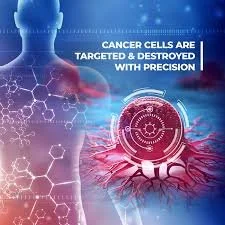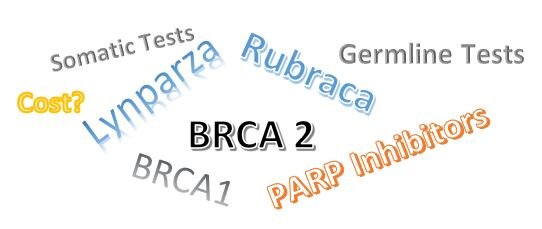At the ESMO 2018 Conference that was recently concluded, there was a report of the clinical experience of 100 men with metastatic castrate resistant prostate cancer (mCRPC) who were consecutively treated with Lu-177 PSMA-I&T Radioligand Therapy.
Provenge When Used In Castrate Sensitive Men with Prostate Cancer Changes PSA Kinetics, But Does Not Effect Time To Bio-Chemical Failure
The understanding that the earlier Provenge is used in castrate resistant men with prostate cancer has led many men to ask why not use Provenge even earlier when they are still castrate sensitive? This question is an excellent one which follows the logical next step; however, the answer is surprising!
Survival Not Improved by Adding Radiotherapy in All Newly Diagnosed Men with Metastatic Prostate Cancer
The Synergy between Xtandi and Zytiga with ADT – Is it Important to Continue Taking ADT Along with Xtandi and Zytiga?
ADT Plus Docetaxel and Estramustine vs. ADT In High-Risk Localized Prostate Cancer
Oncotype DX AR-V7 Test Approved for Coverage by Medicare
Epic Sciences and Genomic Health, Inc. today announced that a local Medicare Administrative Contractor that assesses molecular diagnostic technologies, has issued a positive final local coverage determination (LCD) for the Oncotype DX® AR-V7 Nucleus Detect™ test.
Black Men with Prostate Cancer Are More Responsive to Radiation Than White Men
Recently released and unexpected findings have been announced, contrary to previous understandings, black men who received primary radiation therapy to treat their prostate cancer had lower rates of biochemical cancer recurrence than white men. They also had a lower rate of developing distant metastasis.
What are the Important DNA Repair Mutations in Prostate Cancer?
There has been much discussion as well as clinical trials about the use of personal genetic information, specifically the presence of mutations in the DNA repair genes such as BRACA2, with the successful use of PARP-Inhibitors and in confirming our understanding that the occurrences of these genetic mutations are an indication of a poor prognosis.
BRACA is not the only DNA repair pathway you nee to be aware of if you have Prostate Cancer. Learn about to other mutations you need to known.
ARAMIS Trial Finds That the Investigational Treatment Darolutamide Extends Metastasis-free Survival of Men with M0 Castrate Resistant Prostate Cancer
It has been announced that the Phase III ARAMIS Trial (Androgen Receptor inhibiting Agent for Metastatic-free Survival) evaluating an investigational treatment known as darolutamide in men with Non-metastatic Castration-resistant Prostate Cancer (nM0) has successfully met its primary endpoint of extending the metastasis-free survival (MFS) of men compared to placebo.
Ablative Radiation Increases Survival in Some Newly Diagnosed Men with Metastatic Prostate Cancer
Degarelix Might Be Superior to Leuprolide in Minimizing Cardiovascular Disease and Incidents in Men with Prostate Cancer
We know that the incidence of both cardiovascular disease (CVD) and prostate cancer increase with age, resulting in higher mortality. CVD is the second most common cause of death in men with prostate cancer [1,2] Hormone therapy (ADT) with gonadotropin-releasing hormone (GnRH) agonists like Lupron for treatment of prostate cancer has been linked to additional increases in CVD morbidity and mortality. This link is especially evident in the first year of treatment [3], and men with a history of CVD are at higher risk [3].
Degarelix, which is different from the (GnRH) agonists, is a GnRH receptor antagonist also approved for the treatment of men with advanced prostate cancer. However, good data is suggesting that degarelix might have a lower incidence of causing CVD than the GnRH agonists
Can You Use Low Dose Zytiga with Food?
Racial Differences in Prostate Cancer Aggressiveness and Metformin
Metformin, an inexpensive FDA approved diabetes drug, has been recently re-purposed as a treatment for prostate cancer. It has been associated with a reduced incidence of prostate cancer and improved prostate cancer outcomes.
Recent questions have risen asking whether race modifies the association between metformin use and prostate cancer aggressiveness.
Men Diagnosed with Advanced Prostate Cancer Have a Longer Survival if They Have Surgery Followed by Radiation
One of the on-going debates surrounds the question, should men with newly diagnosed advanced prostate cancer have a radical prostatectomy (RP). In a retrospective study, it was found that men lived longer if they had an RP followed by adjuvant radiotherapy (XRT). The study was reported in, Cancer, a very reputable Journal.
What Are Circulating Tumor Cells?
Circulating tumor cells (CTCs) are cancer cells that detach from a primary cancer tumor and enter a person’s bloodstream. Their goal is to move to another part of the body to form new metastases. These new metastatic lesions are more aggressive than the primary tumor and account for most of the cancer-related deaths.
Results of Phase 2/3 Trial of PSMA PET Imaging Agent PyL for the Detection of Prostate Cancer Spread
Data from the phase 2/3 OSPREY 2301 Study has shown that the PSMA-targeted small molecule PET imaging agent (PyL (18F-DCFPyL) designed to better visualize prostate cancer outside of the gland demonstrated high sensitivity and reliably in detecting distant metastatic prostate cancer lesions and also a high specificity in confirming the absence of pelvic lymph nodes.






